SALT LAKE CITY — In a video posted last week on Instagram, Brad Hall, 33, sits at a table and takes a big bite out of a round head of lettuce.
“You might be wondering right now why I’m eating a head of lettuce,” he says, still crunching. “I promise there’s an answer to that question.”
The video is part of a campaign he started called “Pass the Lettuce” to encourage people of means to donate their $1,200 stimulus checks to others in need. Hall, who lives in Portland, Oregon, and works in advertising, counts himself lucky to still have a job. But all around him, he has witnessed friends and family struggle with newfound unemployment, thanks to the coronavirus.
More than 16 million Americans, about 10% of the U.S. labor force, have lost their jobs in the past three weeks as social distancing measures have crippled multiple industries including food service, entertainment and sales.
By the end of June, the U.S. unemployment rate is expected to reach 15%, according to forecasts from Trading Economics.
Kevin Burt, director of Utah’s unemployment insurance division, said that after a record high of 33,076 Utahns filing new unemployment claims last week, the state’s numbers are still mounting.
“I can tell you we are not seeing a decrease,” said Burt. “We’re still seeing historic highs, so we’re not past any curve currently.”
While government representatives across the country are working to provide stimulus checks, unemployment insurance, small business loans and payment deferrals for rent, mortgages and student loans, individuals face a dizzying amount of uncertainty concerning their financial situations.
Drawing upon his marketing background and the example of the ice bucket challenge, Hall is trying to help. At the end of his video, he nominates three friends to pledge their $1200 to a charitable cause and asks them, “Will you pass the lettuce?”
“My hope first and foremost is that we can look around and help the people we know,” said Hall. “A lot of people hurting aren’t raising their hand and asking. They are silently suffering and having anxiety, but a lot of us do know people like that. And in the coming months we will know even more.”
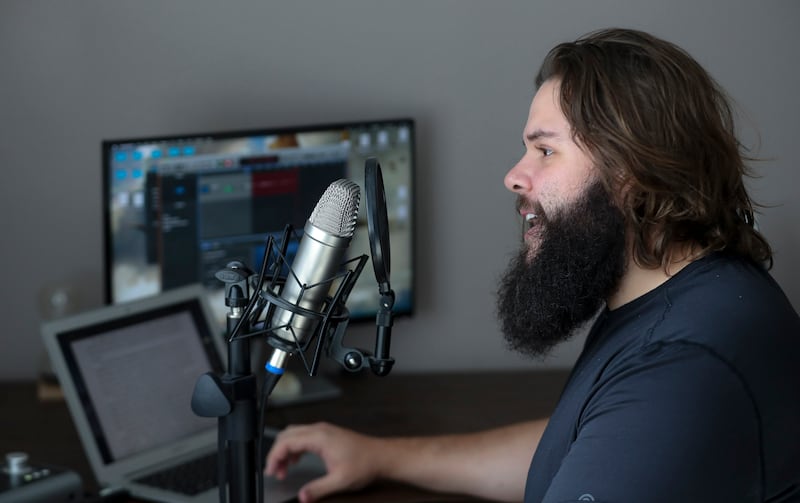
A delicate house of cards
Jacob Baird
Jacob Baird, 27, was never sure if his dream of being an actor would come true. But two years after graduating from Brigham Young University with a degree in fine arts, he was making it work, patching together live performances with film, commercial and voiceover jobs. At the beginning of March, he was performing in a Salt Lake City play called “The Chocolatier” and a show at Evermore theme park in Pleasant Grove. On the side, he had a gig setting up for concerts and conventions.
But after President Donald Trump declared a national emergency concerning the novel coronavirus outbreak on March 13, all of Baird’s performances and jobs were canceled.
“This very wonderful little house of cards I stacked sort of got knocked down overnight,” said Baird, who lives in Provo.
Without additional support — like rent and student loan deferment, the promised $1,200 stimulus check and unemployment insurance— Baird estimates he could survive for only a few weeks on what he has saved.
“It’s been humbling; I’ve had to be very open with the people in my life about my situation,” Baird said.
Friends and family members have answered Baird’s call for help. A friend brought over a leftover tray of Panda Express catering from her work. The bishop from Baird’s local congregation of The Church of Jesus Christ of Latter-day Saints dropped off three boxes of food, including granola bars and frozen veggies, that BYU students donated before leaving campus to return home to their families.
“That was really heartwarming and surprising,” Baird said.
While he searches for a new job, Baird is using his free time to update his website and practice voice-over work. On Thursday afternoon, he sat at the desk in his bedroom. With his big brown beard hovering in front of a silver microphone, he recited excepts from “The Tell-Tale Heart.”
“It’s good to record something every day or write or read something every day,” Baird said. “I need that creative outlet.”
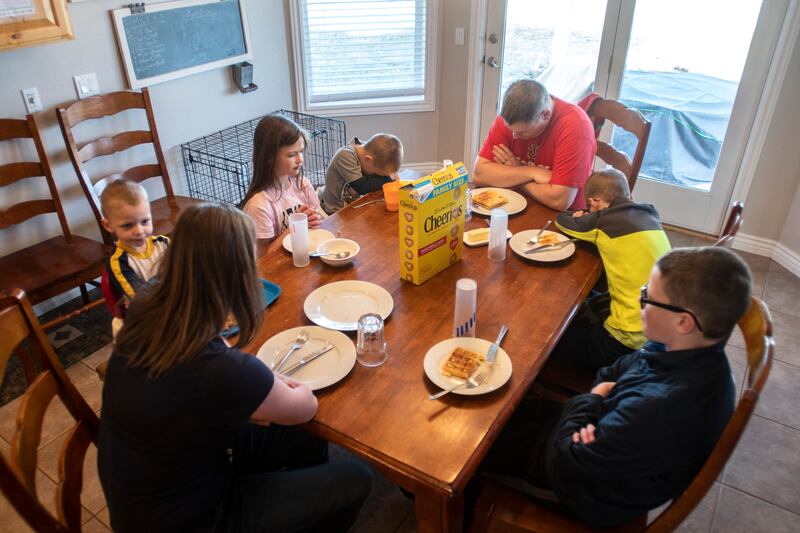
The recession veteran
Paul Cundick
After coming out of college in the midst of the Great Recession in 2009, Paul Cundick, 34, said he has never had stability in his career in human resources. Initially, he had difficulty finding a good job, and last year, he spent seven months unemployed due to the restructuring of his department at Intermountain Healthcare. Just when he was starting to get back on his feet, the coronavirus knocked him down again. Cundick was laid off from ApplicantPro, a business that helps companies with hiring.
In a modest stucco house that sits on the shore of the Snake River in Rupert, Idaho, Cundick, his wife and five kids start each day with breakfast at 8 a.m. By now, they are well-practiced at living on a budget. Exercising extreme care, they can survive on just $100 a week for groceries, Cundick said. Ramen, salad, eggs and milk are staples in their diet. There is no eating out and no soda pop.
“It’s hard because I think there’s a little bit of PTSD in my kids from me being unemployed last year,” Cundick said.
Cundick has noticed that his kids, who are between the ages 2 and 11, are more rowdy when they are stressed. There’s a little more pushing and shoving, they don’t obey as quickly and they have difficulty focusing, he said. The family takes daily walks together to help the kids get their energy out.
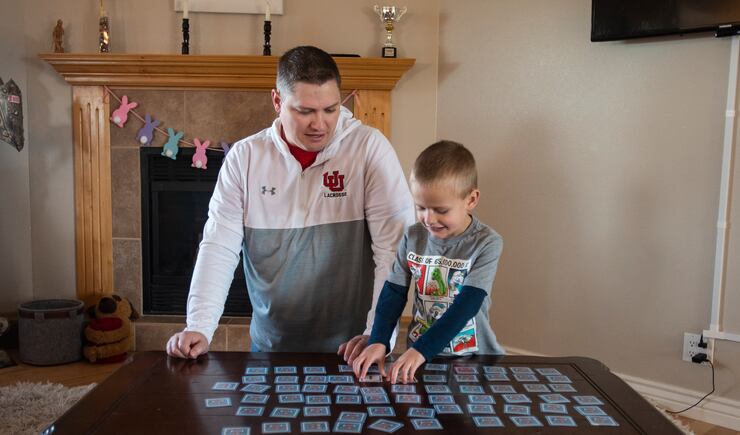
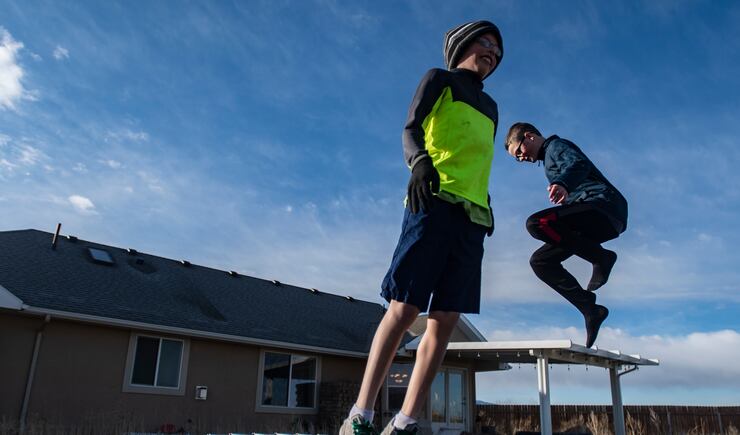
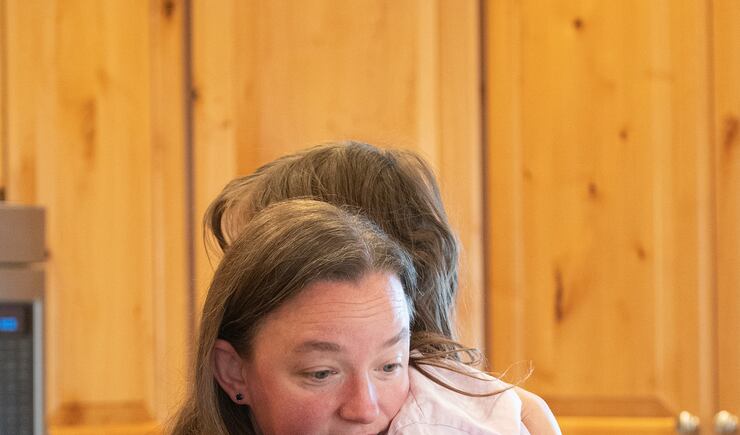
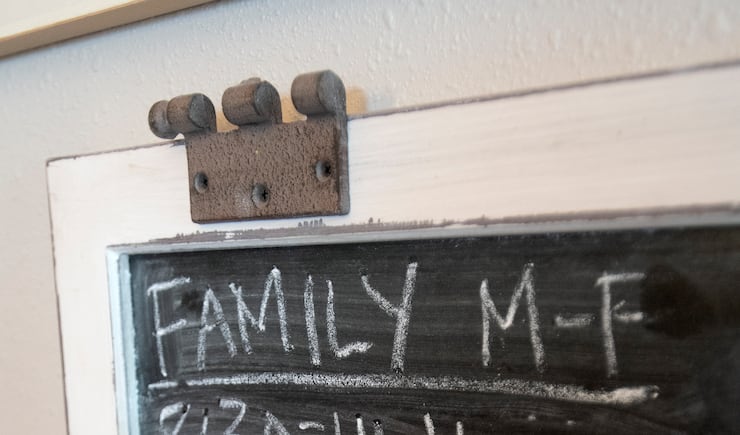
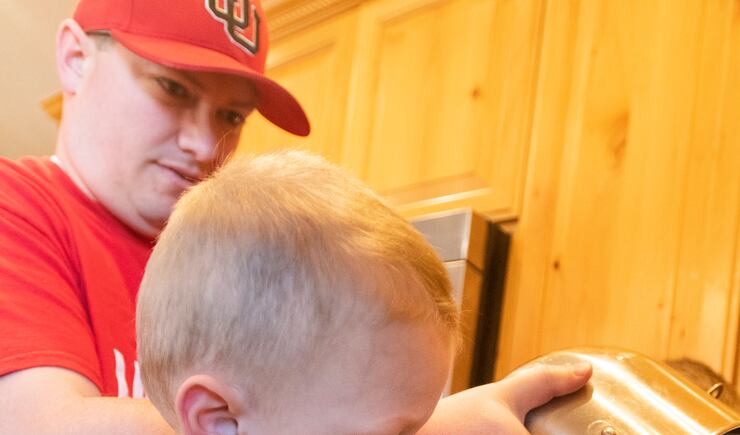
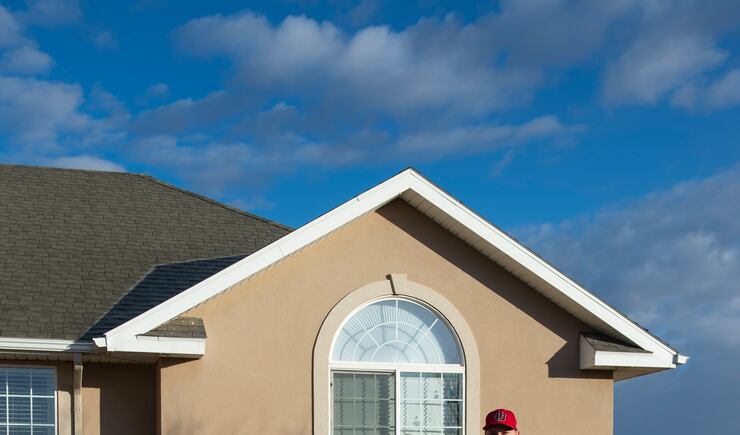
“I wish I could raise kids who didn’t have to worry about their dad’s job,” said Cundick, “but I haven’t had that luxury.”
With a master’s degree in human resources from Utah State University, Cundick is now looking for a job and is even considering getting a commercial driver’s license to work as a truck driver.
“Every day it changes so fast,” Cundick said. “I don’t know if another 5,000-10,000 people will be unemployed tomorrow and then I’ll be competing with them for a job. I can’t afford to be picky.”
‘A lot of miracles’
Jayson Edwards
In the early hours of the morning before a magnitude 5.7 earthquake rocked the Wasatch Front, Jayson Edwards, 40, the owner of J. Dawgs restaurants, couldn’t sleep. Agonizing over how to save his business in the midst of the coronavirus, he went and sat at the kitchen table. Usually the window frames a soothing view of Squaw Peak, but Edwards stared out into darkness. The sound of his sobbing woke up his wife, he said.
“It was pretty dire. It felt like my whole world was getting pulled out from under me,” said Edwards, who lives in Provo. Soon after, Edwards went to see a psychiatrist for help coping with the depression and anxiety he was feeling. “It’s been like nothing I’ve ever experienced.”
The first debilitating wave came when the NBA canceled its season and J. Dawgs had to shut down two stores in Vivint Arena. Then Gov. Gary Herbert ordered all dine-in restaurants closed. The 5.7 magnitude earthquake, which damaged the downtown location, “added insult to injury,” Edwards said. Currently, four out of eight J. Dawgs locations remain open with curbside walkup and makeshift drive-thrus. About 45 employees have been let go.
“Every day, we are fighting for our lives,” said Edwards, who started the J.Dawgs business in 2004 in a shack next to BYU’s campus.
Community members and Edwards’ four children have pitched in to help. The kids, between the ages of 4 and 13, all offered to give their dad their savings, amounting to a few thousands dollars. Residents in Alpine and River Bottoms bought J. Dawgs for all their neighbors and had the 25-foot mobile kitchen come to serve families one at a time. Businesses like Qualtrics and Entrata have continued their support by organizing drive-thru lunches for employees and buying gift cards.
“People have rallied around us and that’s incredible,” said Edwards. “They know we are suffering.”
The biggest relief for J.Dawgs will come with the 2½ months of payroll protection that is part of the federal government’s $350 billion loan program. Edwards is eagerly waiting on bank approval.
“A lot of miracles have all added up,” Edwards said. “And I think we’re going to make it.”
‘Who is gonna watch the kids?’
Amy Juarez
Amy Juarez, 28, lives near Madison, Wisconsin, where she has worked as a patient coordinator at a dental clinic for the past six months. When she was first furloughed, her employer told her it would just be two weeks. The next email she got said she could come back at the end of March; the next one said May.
Juarez and her husband have a total of four kids, ages 8 to 17, who are all in different grades and studying virtually at home while Juarez awaits her return to work with no amount of certainty.
“Trying to help all of them at the same time, trying to get dinner stuff done, it’s very stressful just to be at home right now,” Juarez said.
The family also had to cancel a planned trip to Disneyland, which has added to the stress. They’ve already started to dip into the $4,000 they had saved to pay their bills, which include $1700 in rent and two car payments that total $1100 a month. Even though Juarez’s husband works at a commercial window business, finances are tight.
But Juarez said she isn’t planning on applying for unemployment. That’s because she is a Dreamer. Juarez was born in Mexico and came to the U.S. with her parents when she was 6 years old. Juarez’s lawyer advised her that applying for government services could negatively affect her application for citizenship in the future.
Instead, Juarez is applying for grocery store jobs, which are now highly competitive. She’s already submitted applications to work at Aldi, Woodman’s and Pick ‘n Save. She heard back from Aldi but she turned down the opportunity because the only available shift was from 10 p.m. to 6 a.m.
“The only way that would work out for us is if my mom came to help. But she can’t come every day,” said Juarez. “So who is gonna watch the kids?”
Prepared for crisis
Doreen Palomin
Doreen Palomin, 47, lives in Spokane, Washington, and lost her job as a nanny a couple weeks ago. Up until then, her husband, 53, was unemployed as well. But the couple was prepared for the coronavirus crisis with a three-month food supply and enough savings to cover rent, utilities and other expenses.
With their kids grown up and out of the house, Palomin and her husband are able to limit their expenses. By necessity, they’ve stopped going out to dinner and a movie for their weekly date night.
“We are definitely being more frugal. We are not buying steak, for example,” said Palomin. “We need to save right now.”
But Palomin is confident that current constraints will not affect her and her husband’s retirement plans.
“Everybody took the same downward shock,” said Alicia Munnell, a professor and director of Boston College’s Center for Retirement Research. “But young people have a real advantage here because they have time to wait for markets to come back. They weren’t going to use that money right away. For older people, it’s much scarier.”
Almost half of U.S. households 55 and older have nothing saved for retirement, according to an estimate from the U.S. Government Accountability office. Munnell’s research shows that those who do have retirement savings are worse off than previous generations who relied on pensions rather than 401(k) accounts. A recent study by Munnell indicates middle income late boomers had less than $30,000 saved in their early 50s, compared to $55,787 for early boomers and $50,787 for mid-boomers.
In other words, even before this financial collapse, things did not look good for retirees, said Munnell. Now, even more will be reliant on social security, she added.
“I didn’t realize how scary losing finances would be,” said Palomin. “We have to understand how emotional this really is for people who weren’t ready with emergency stores and finances.”
‘An emotional roller coaster’
Chloe Millburn
Chloe Millburn, 22, was the 14th employee at Orem-based tech startup Blip Billboards. As an account manager, she handled 200 of some of the company’s highest level clients. After working at Blip for two years and receiving three promotions, she never imagined she would be furloughed.
She said she was working from home and had no worries at all the morning of a group Zoom call in which she learned that the company was letting go of 11% of its workforce and furloughing another 20% — about 22 people. The remaining employees would take significant pay cuts.
“It’s hard to not be angry and bitter,” said Millburn, who lives in Orem and is working full time to support herself through school at Utah Valley University. “In the end, it didn’t matter that I was a hardworking, good employee. It was just a bad situation.”
“A big part of my identity was what I did at my job because I was a highly recognized employee and very liked by my peers,” added Millburn. “It’s definitely been hard not to lose confidence in myself even though I know it wasn’t my fault.”
The hardest pill to swallow for Millburn has been canceling her wedding, which was planned for May 12. She and her fiancé considered postponing the reception, but without knowing when she will be able to work again, Millburn decided it would be wisest to save the money instead. She may have to hit pause on her education as well if she can’t pay for next semester’s tuition.
Instead of wallowing, Millburn said she allowed herself one day to mourn the collapse of her future plans before applying for unemployment and looking for new jobs.
“It’s been really tough, but I don’t want to have a pity party,” said Millburn. “There are so many other people suffering way more, who are in the same situation with less savings and less relevant work experience. Every time I am starting to get upset, I think of the people having a harder time.”
Correction: A previous version incorrectly stated Blip Billboards is a Lehi-based company that laid off 85% of its workforce — about 45 people. Blip Billboards is an Orem-based company that let go of 11% and furloughed 20% of its employees, which amounts to about 22 people.








